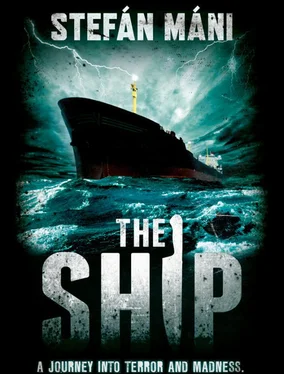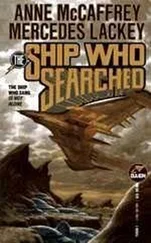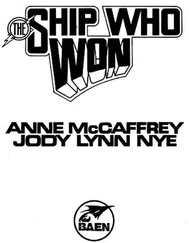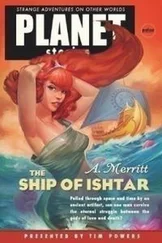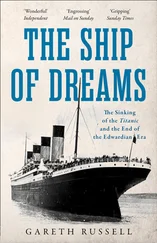Silence.
‘He who bears arms is not an educated man,’ says the captain, looking directly at Satan. ‘He who is educated does not bear arms.’
Sæli turns a questioning look on Stoker, who shrugs.
‘God allows even those whose intentions are evil to have their way,’ says Satan and smirks.
‘Those who live by the sword die by the sword,’ responds the captain calmly.
‘The fact that men die means that men are doomed to death when they are born. And if a person is born dead he can’t die,’ answers Satan without blinking. ‘Only those who believe they’re alive fear death. I’m dead. I fear nothing!’
‘I haven’t heard that one before,’ says the captain, opening his eyes wide. Then he smiles crookedly, picks up the bottle and passes it over the table to Satan.
‘What was that about?’ asks Sæli, smiling faintly.
‘Thanks,’ says Satan, taking the bottle from the captain.
‘Dear friends,’ says the captain once Satan has filled his glass. ‘Now let’s drink to those of us who are still alive. Here’s to life! Cheers!’
‘Cheers!’
They empty their glasses, grimace and lick their lips. In the distance they can hear the loud, mournful song of whales calling to each other, and the ship’s hull creaks as it slips sideways down the side of a wave that had lifted it up towards the starry night sky.
‘No, things don’t look so good, dear friends,’ says the captain and smiles at his men like a pastor attempting to hearten the mourners at a funeral. ‘But whether you believe it or not, it’s not the worst trouble I’ve been in.’
Silence.
‘After I graduated from Navigation School I wandered around Europe and signed on to the odd tub, both to get experience and to have a look round on shore. Lisbon, Liverpool, Rotterdam, Hamburg. That was a great time, boys!’ says Guðmundur with a faraway look in his eyes. ‘Then, in communist Estonia, I was offered a job I was too young and foolish to turn down. The only thing I heard was the word “captain” . They wanted to take me on as captain. A group of about sixty people had bought a sailboat named Lootus and needed someone to sail it over the Atlantic, first to Sweden and then to the US. The people were desperate. One mother looked at me pleadingly. She held an infant swaddled in tattered clothes, a dark-haired girl with a hare lip. How could I refuse these people?’
He pauses briefly to fill their glasses. He looks at each of his shipmates in turn, hands them back their glasses and licks his lips.
‘The boat was a sorry sight. It was actually criminal to go to sea with all those people – men, women and children – in a rotten old bucket like that. It wasn’t until things came to a head that I found out that hiring me had been the refugees’ last hope. Nobody else had liked the look of the enterprise.’
Guðmundur half smiles, but the smile doesn’t reach his eyes, which stare into the boundless distance.
‘The deck leaked and there was always a line outside the head, which actually was just a crummy shed. The people lived on rotten potatoes that were stored in wooden crates on the deck, the water tanks were corroded and those poor children got dysentery, and they were covered with red rashes and sores. But I turned a blind eye to all of this because I had an irrational belief in the job I was doing. I was helping these people to free themselves from the chains of communism and begin a new life in a new world.’
Guðmundur drains his glass and refills it. Then he carries on with his story.
The navigation equipment available to him had consisted of an ordinary wristwatch, a sextant, a compass and a two-bit map. But he had succeeded in keeping on the right course for about 8300 kilometres – or until they hit a storm. According to the captain’s calculations the ship was about 2000 kilometres south-east of Florida when threatening thunderclouds began to pile up on the horizon. The radio batteries had gone dead and there wasn’t even a barometer on board, so the captain had no way of confirming his suspicions about an impending storm.
In the evening they were hit with hurricane-force winds that went on to rage for four days solid. The boat was about to fall apart and at least one man had fallen overboard.
Below decks the passengers crowded together in the airless damp. The stench from sweat, vomit and unwashed baby clothes was unbearable. Mothers and sick children lay together in the bunks but the others stood. Seawater rained down from the leaky deck and, little by little, the boat filled with water.
The merciless battering of the waves eventually loosened the planks of the old sailboat’s hull, so that it began to leak below the waterline. People bailed furiously and the hand pump was in constant use, but the water level in the boat still rose steadily. In the engine room the sea slopped onto the already overheated engine, forming a cloud of steam so you couldn’t see your hand in front of your face. They were also bailing furiously down there. Soot-covered men passed pails from one to the other, silent and exhausted after three days of continuous struggle. Women and men down in the cabins stuffed their ragged clothes into the cracks and lay on top of them to stop the leaking.
For three days they’d had no food other than hardtack, wet by the sea. The sick children had had nothing to eat. The drinking water was just a soup of rust and dirt.
During the night, a three-month-old girl breathed her last. It was the dark-haired child with the hare lip.
The storm died down and they were able to see blue-green waves around the boat. There was less spray, so they opened the hatches and everything else that could be opened. The men were bailing with buckets, the women with pots and pans, and they used blankets and overcoats to wipe the rest. After two hours the boat was virtually dry, and they started caulking the cracks with hemp and tar. The boat leaked steadily but the hand pump managed to keep up.
Hope – which had never died in the hearts of the refugees – quickened hour by hour.
Most of the crew lay, exhausted, and soaked up sunlight on the deck. The sick children had been dressed in dry clothes and were on the mend. One young man got out his accordion and started playing a mournful folk song.
The others joined in and sang…
Guðmundur stops talking, sniffs, gently clears his throat and empties his glass.
Silence.
‘And then what?’ asks Sæli in a low voice. ‘Did the boat sink?’
‘No, not while I was at the wheel. After sailing for five days we crawled into harbour in Jacksonville. The boat sank there just a few days later. After a few months in quarantine, the refugees were let loose. Fifty-four Estonians spread themselves over the US from one end to the other, and some went north to Canada, and I returned to Iceland, the wiser for the experience.’
‘I didn’t know about that,’ says Sæli, looking at the captain with admiration. ‘I’ve never heard this story, but everyone must have been talking about it.’
‘No,’ says the captain, shaking his head. ‘I’ve never told anyone before – not a living soul.’
‘Why not?’ asks Sæli.
‘Why not?’ echoes the captain and takes a deep breath. ‘Because I shouldn’t have gone on that trip. If I had refused, the ship would never have sailed. Then all those people would still be alive today.’
‘But you’re a hero, man!’ says Satan, smiling at the captain. ‘It must be seen as a great achievement getting all those refugees safe and sound across the ocean on a tub like that, even though one or two died on the way.’
‘Well, maybe you could say that.’ The captain sighs as he fills his glass with a shaking hand. ‘But I’ll be damned, and so help me God, if I don’t think it the lesser of two evils to drown in a storm every day for all eternity than to sail with the corpse of a child and a mourning mother for one single moment. That poor woman.’
Читать дальше
